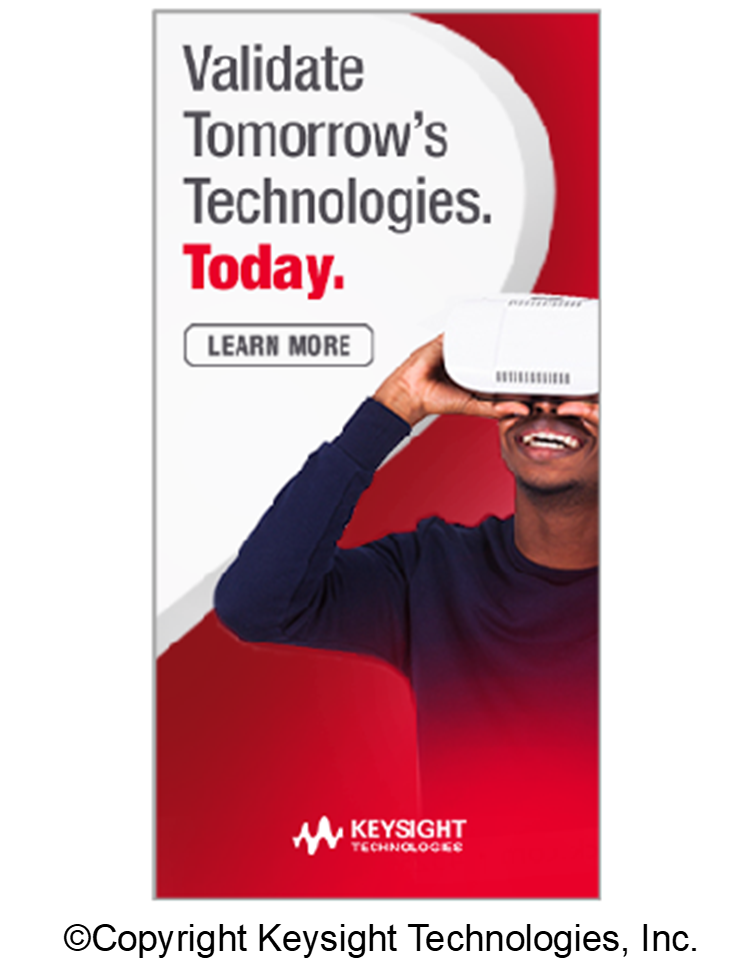
Apr
Can A Small Market Research Firm Help A Big Tech Company?
jerry9789 0 comments Brandview World, Burning Questions
Market research has proven itself to be an indispensable and critical tool in helping companies identify their audiences and achieve their marketing goals. As with any tech company, market research groups can come from small or large firms. You might be inclined to go with a larger market research firm because of the common adage “Bigger is better,” but you just might be surprised by what a smaller market research group can accomplish for you and your big tech company.
What makes smaller market research firms different from their larger counterparts? What are the advantages of working with a small market research group? Off the top of your head, you might think that cost-effectiveness is the main reason. But it goes well beyond that. Here are three good reasons why partnering with a small market research firm benefits your big tech company:
Copyright: geralt
One Team from Start to Finish
From the initial sales meeting to the project’s conclusion and implementation of recommendations, you’ll be interacting with the same team throughout. With a larger company, you might need to work with different teams for every phase of the project, and you might find yourself having to repeat yourself now and then, especially with the nuances of what you want or what the project needs. There’s also a risk that certain details and preferences might be overlooked or don’t get passed on as you switch from one team to another as you move through the phases.
Not only is there a seamless transition between stages of the projects with one team, but Cascade Strategies also employs veterans of the industry who bring to the table a potent combination of well-rounded skillsets and experience. Not only are they able to effectively understand your preferences and ideas no matter which phase of the project you’re in, but they also can oversee and recognize the effects of those concepts in the grand scheme of things or when they would come into play.
Copyright: ar130405
Better Communication and Responsiveness
With a smaller but experienced team, communication lines are much more open with members empowered to act or resolve issues when the opportunity arises. A project might encounter delays with a larger firm of multiple teams due to miscommunication (“I wasn’t informed”) or hindrances resulting from the division and distribution of roles and responsibilities (“Not my job”). Thus, a smaller team might also be more available and receptive when it comes to assisting a client whenever they raise a question or concern.
One team alone holding a meeting might slow down the overall progress of others working on the project, so just think of the impact if multiple groups need to take time off for discussions and calibrations. The time multiple teams take for meetings can be time used by a smaller team for revisiting ideas and scenarios until a “breakthrough” is achieved.
You might also find a smaller team is more invested in the project, hence the clearer communication and quicker responses. Multiple teams might be handicapped with multiple projects going on at the same time and the need to meet deadlines. A smaller team might handle more than one case study at once, but given that they’re overseeing the whole thing from start to finish, there exists a passion to get everything done right, and seeing the client and team’s visions come true no matter how big or small a project is.
Copyright: geralt
Culture
Speaking of passion, you might find a smaller market research firm having a more “can do” attitude and approach to your project. Not only that but at Cascade Strategies, we continually push the limits of what can be done and achieved with a project to reach that “breakthrough” that you might not have otherwise found had you gone with a different market research firm. A larger market research company on the other hand might be hustling to come up with conventional or simplistic ideas for you just to meet deadlines and deliverables.
Copyright: Kindel Media
Big Tech Company Case History
Take for example an academic software transformation project Cascade Strategies completed for a large global producer of industrial software. We conducted depth interviews with worldwide universities to develop a working hypothesis that would help formulate an implementation roadmap. We recruited academic decision-makers as respondents from a list provided by the project’s Software as a Service (SaaS) project director and supplemented by our panel. The interviews lasted roughly 45 minutes, with four in each of 16 countries for a total of 64 in-person depth interviews.
The study resulted in a working hypothesis with not one, not two, but three important premises, chief of which revealed that the respondents can be divided into the following two groups: the Elite and the Rank & File. The former are respondents from universities with a sophisticated preference towards the software provided to the students and typically have greater-than-average resources as well as uniform policies regarding software acquisition. The latter came from academic institutions demonstrating a pragmatic and single-task-focused approach to providing software to the students, and they often don’t have the full resources or uniform policies for software acquisition.
The second premise was that industry partnerships create pressure for constant advancement and higher sophistication of the software used for teaching, especially in the pursuit of true industrial replication. The third premise was that the pace of change is overwhelming for the Rank & File — too much for them to manage without guidance and assistance from the industry itself. Software makers who showed themselves willing to support academic institutions in this way we called “Industry Guides.”
Based on these three premises, our working hypothesis was that the software providers should clearly and publicly demonstrate equal concern for the Elite and the Rank & File when it comes to SaaS products and programs. This can be achieved with the re-introduction of product tiers, offering rudimentary beginner-level products such as simple tutorials and help functions as part of efforts to nurture at a basic level and push for industry partnerships, helping drive the Rank and File towards gradual sophistication in the software they use for teaching. Additional research into the needs and wants of the Rank & File could also lead to the creation of broad-based communications programs as well as specific single-university special programs aligned with these efforts.
This case history is one of many examples showing how our market research firm has consistently helped big tech companies for over three decades. From dramatically increased sales to award-winning marketing campaigns, we help big tech companies accomplish their goals and resonate with their target audiences with the valuable and actionable insights produced by the high-level and quality market research we provide. It’s not only our passion but also the high level of human intelligence and imagination we apply that adds a deeper value to the insights we derive for your project outcome.
If you would like your brand to break past ordinary bounds and achieve true excellence in its next campaign, contact Cascade Strategies today and find out how we can help you.

Sep
What It Means to Choose or Decide In The Age of AI
jerry9789 0 comments artificial intelligence, Burning Questions
Longstanding Concerns Over AI
From an open letter endorsed by tech leaders like Elon Musk and Steve Wozniak which proposed a six-month pause on AI development to Henry Kissinger co-writing a book on the pitfalls of unchecked, self-learning machines, it may come as no surprise that AI’s mainstream rise comes with its own share of caution and warnings. But these worries didn’t pop up with the sudden popularity of AI apps like ChatGPT; rather, concerns over AI’s influence have existed decades long before, expressed even by one of its early researchers, Joseph Weizenbaum.
ELIZA
In his book Computer Power and Human Reason: From Judgment to Calculation (1976), Weizenbaum recounted how he gradually transitioned from exalting the advancement of computer technology to a cautionary, philosophical outlook on machines imitating human behavior. As encapsulated in a 1996 review of his book by Amy Stout, Weizenbaum created a natural-language processing system he called ELIZA which is capable of conversing in a human-like fashion. When ELIZA began to be considered by psychiatrists for human therapy and his own secretary interacted with it too personally for Weizenbaum’s comfort, it led him to start pondering philosophically on what would be lost when aspects of humanity are compromised for production and efficiency.
Copyright chenspec (Pixabay)
The Importance of Human Intelligence
Weizenbaum posits that human intelligence can’t be simply measured nor can it be restricted by rationality. Human intelligence isn’t just scientific as it is also artistic and creative. He remarked with the following on what a monopoly of scientific approach would stand for, “We can count, but we are rapidly forgetting how to say what is worth counting and why.”
Weizenbaum’s ambivalence towards computer technology is further supported by the distinction he made between deciding and choosing; a computer can make decisions based on its calculation and programming but it can not ultimately choose since that requires judgment which is capable of factoring in emotions, values, and experience. Choice fundamentally is a human quality. Thus, we shouldn’t leave the most important decisions to be made for us by machines but rather, resolve matters from a perspective of choice and human understanding.
AI and Human Intelligence in Market Research
In the field of market research, AI is being utilized to analyze a multitude of data to produce accurate and actionable results or insights. One such example is deep learning models which, as Health IT Analytics explains, filter data through a cascade of multiple layers. Each successive layer improves its result by using or “learning” from the output of the previous one. This means the more data deep learning models process, the more accurate the results they provide thanks to the continuing refinement of their ability to correlate and connect information.
While you can depend on the accuracy of AI-generated results, Cascade Strategies takes it one step further by applying a high level of human thinking. This allows Cascade Strategies to interpret and unravel insights a machine would’ve otherwise missed because it can only decide, not choose.
Take a look at the market research project we performed for HP to help create a new marketing campaign. As part of our efforts, we chose to employ very perceptive researchers to spend time with worldwide HP engineers as well as engineers from other companies.
This resulted in our researchers discovering that HP engineers showed greater qualities of “mentorship” than other engineers. Yes, conducting their own technical work was important but just as significant for them was the opportunity to impart to others, especially younger people, what they were doing and why what they were doing was important. This deeper level of understanding led the way for a different approach to expressing the meaning of the HP brand for people and ultimately resulted in the award-winning and profitable “Mentor” campaign.
If you’re tired of the hype about AI-generated market research results and would like more thoughtful and original solutions for your brand, choose the high level of intuitive, interpretive, and synthesis-building thinking Cascade Strategies brings to the table. Please visit https://cascadestrategies.com/ to learn more about Cascade Strategies and more examples of our better thinking for clients.

Jun
How Great Research Produces Great Campaigns
jerry9789 0 comments artificial intelligence, Brand Surveys and Testing, Brandview World, Burning Questions
Can AI Produce Your Marketing Campaign?
If you were given the task of developing a global communications campaign for a technical products company, would you let ChatGPT do it?
 You might, especially if you noted that ChatGPT could churn out dozens of ads like the one above without paying art directors, copywriters, media professionals, or users of a Demand Side Platform.
You might, especially if you noted that ChatGPT could churn out dozens of ads like the one above without paying art directors, copywriters, media professionals, or users of a Demand Side Platform.
But we wouldn’t. This is because it’s hard for AI to produce at the level of excellence, and excellence is what should be sought.
Seeking Excellence in Marketing Campaigns
The ad below is part of an award-winning and profitable “Mentor” campaign for HP. To arrive at this level, HP had to commission very perceptive researchers to spend time with worldwide HP engineers as well as engineers from other companies.
The researchers stretched the intuitive, interpretive, and synthesis-building capacities of their right brains to arrive at a subtle insight that AI would have great difficulty seeing: that HP engineers showed greater qualities of “mentorship” than other engineers. They thought it was important not only to conduct their own technical work, but to impart to others (typically younger people) what they were doing and why what they were doing was important.
It would be very hard indeed to stretch an AI chatbot (or other AI engine) to that deeper level of understanding about what a truly extraordinary ad should do to express the true meaning of a brand to people.
An example from the world of sunglasses
If you were given the job of developing a campaign for a line of sunglasses, you could probably get ChatGPT to produce a large number of ads like the following at little or no cost (with the exception of the cost of the talent).
 But AI-produced ads fall short of excellence. AI simply cannot do the incisive interpretive work that humans can do to produce something better.
But AI-produced ads fall short of excellence. AI simply cannot do the incisive interpretive work that humans can do to produce something better.
Researchers working for the Gargoyles brand of sunglasses spent time with those who preferred this brand and made a discovery about them that AI engines would have great difficulty seeing: that many Gargoyles wearers were upward strivers who were at first destined to fail, then turned things around with drive, verve, and strenuous effort.
 They had a “storyline of life” worth admiring. To gain this insight, the researchers had to stretch the intuitive and interpretive powers of their brains. They could not simply rely on a summarization of prior human experience in producing ads about sunglasses.
They had a “storyline of life” worth admiring. To gain this insight, the researchers had to stretch the intuitive and interpretive powers of their brains. They could not simply rely on a summarization of prior human experience in producing ads about sunglasses.
Higher powers AI cannot reach
AI cannot stretch to this level of excellence. It cannot see broader levels of human experience that may be required to produce excellence, such as “how could sunglasses have anything to do with striving?” or “how could a life story of struggling ever be associated with sunglasses?” Hell, generative AI wouldn’t even think to inquire about a storyline of life. But humans can do that when their right brains are performing at a very high level.
The researchers in this case had to sweat the details a little more, spend quality time pondering the higher thematic levels, and drive their brains well beyond summarization to a more sublime expression of the true meaning of a brand to people.
This is the kind of work Cascade Strategies does on a daily basis. Please have a look at some other examples of higher thinking for clients at https://cascadestrategies.com.
People are catching on and speaking out
More people are seeing the chasm between the summarization of human experience that AI can provide and the excellence provided by the greater intuitive powers of the human brain, and they are speaking out about it. One example is Po-Shen Loh, a charismatic math coach who directly confronts AI, challenging his students to attack complex math problems at higher levels of understanding and interpretation than AI could ever provide.
But there are even more people who are discovering this excellence gap, and their voices will grow stronger.

Jun
How Great Research Helps Tech Companies
jerry9789 0 comments artificial intelligence, Brand Surveys and Testing, Brandview World, Burning Questions
How Well do you Understand Your Customers’ Needs?
As a Tech Company, how well do you know your customers? In most cases, identifying who has an affinity for your brand and focusing on the needs of that customer type can spell success for your products, especially the launch of your new offerings.
Sure, you might think you can have AI go over your customer database and hope it’s able to recognize customers and prospects most likely to purchase your product. However, AI shortcuts are unable to approach the intuitive and interpretive power of human thinking, let alone the kind performing at a high and excellent level.
The Story of HP Test & Measurement
The case of Hewlett Packard’s “Mentor” campaign is instructive. HP commissioned our researchers to spend quality time with worldwide HP engineers as well as engineers from other companies, learning about their daily lives – how they think, feel, and behave. The researchers stretched the intuitive, interpretive, and synthesis-building capacities of their right brains to arrive at a subtle insight that AI would have great difficulty seeing: that HP engineers showed greater qualities of “mentorship” than other engineers.
The result was a highly successful, award-winning global campaign. Conversion rates soared as HP logged higher equipment sales in virtually every world region. The campaign also produced significant financial gains for HP and won an ADDY Award for creativity.
The Squaresoft Video Games Story
We also conducted primary market research for Squaresoft Video Games to determine affinities for their products. They had been sending out about 200,000 mail pieces per month to key metros across the US. By giving us extracts of their file of purchases of similar games, we appended characteristics and modeled affinities for prospective buyers.
We called those most likely to respond “Videobrats.” The model reduced the number of markets to 4 key metros which had the highest concentration of “Videobrats,” concentrating their marketing on high-affinity households in these markets.
Our researchers spent a great deal of time with Videobrats in these markets, exploring their daily lives, discovering how they think, how they interact with others, and how they spend time with entertainment and gaming software. This hard work produced a key set of insights that could be perceived only through the intuitive and interpretive power of the human mind. It’s not something AI could touch.
The result was a campaign of extraordinary power and great marketplace success. Squaresoft reported dramatically increased sales of the two game titles in the specific geographies in question, ranging from 20% to 200%. Not only that, the “Videobrats” campaign won the KPMG Award of Merit for ROI performance and the Ernst & Young Most Effective Marketing Campaign Award.
The Lessons for Marketing in the Tech Sector
Many people conducting marketing campaigns in the tech sector believe you just need to tell people on the web what you have (e.g., software, hardware, systems), and the magic of internet targeting will take care of the rest. They’re wrong. It’s as important in tech as in any other category to tell people why they should want the software, hardware, or systems from your brand instead of another brand. That requires you to express something about what psychologically or emotionally binds your customers to your brand.
Discovering the root of these deeper connections requires more complex layers of understanding and perception than AI can provide at present. Hard-working humans driving their minds to higher levels of interpretation and synthesis can do it.
When market research is used not just as a means to an end but as a way to gain a deeper understanding, Tech Companies are able to produce outstanding results because they are able to come up with inspired and creative solutions addressing the needs of those who value their brand the most. AI is unable to unlock these sophisticated types of solutions because it’s unable to relate on an intuitive and interpretive level the same way excellent human thinking does.
If you’d like to see this kind of magic brought to life for your brand, please reach out to us here.
















